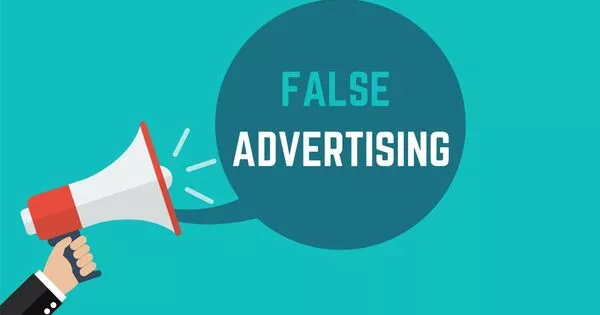False advertising refers to the act of making untrue or misleading claims about a product, service, or company in order to convince people to buy or use it. This can include false statements about the product’s performance, ingredients, benefits, or quality, as well as false comparisons with other products.
False advertising is defined as the act of intentionally (or recklessly) publishing, transmitting, or otherwise publicly circulating an advertisement containing a false claim or statement made to promote the sale of property, goods, or services. A deceptive advertisement is one in which the advertiser intentionally misleads the consumer rather than making an unintentional error. Several governments use regulations to prevent false advertising.
False advertising is generally considered unethical and illegal in most countries, as it can mislead consumers and harm competitors. In many countries, there are laws and regulations that prohibit false advertising, and companies that engage in this practice may be subject to fines, legal action, or other penalties.
False advertising can take many forms, including claims about the quality or effectiveness of a product, the price of a product, or the availability of a product. False advertising can also include omissions or misrepresentations of important information that would impact a consumer’s decision to purchase a product.
Consumers can protect themselves from false advertising by being skeptical of claims that seem too good to be true, doing their own research before making a purchase, and reporting any instances of false advertising to relevant authorities. It’s important for companies to be truthful and transparent in their advertising, as this helps build trust with customers and creates a level playing field for competitors.
There are laws and regulations in place to protect consumers from false advertising. In the United States, for example, the Federal Trade Commission (FTC) enforces laws that prohibit false and deceptive advertising practices. Companies found guilty of false advertising can face fines, legal action, and damage to their reputation. Consumers who have been misled by false advertising may also be entitled to compensation.
















